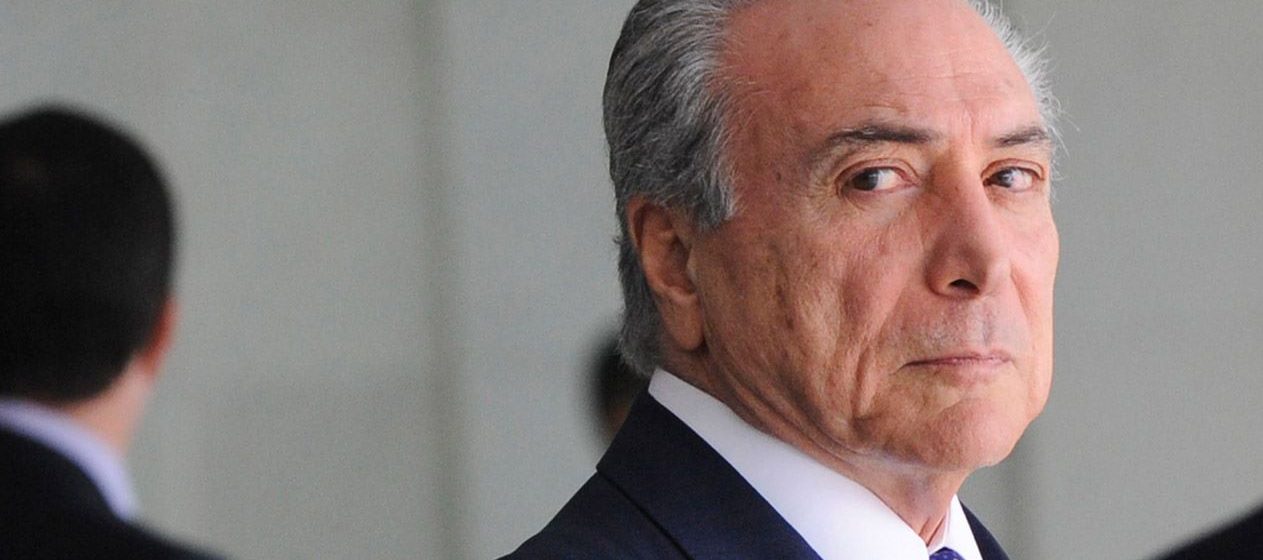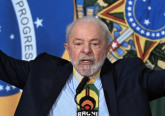It is tempting to speculate about what will happen next in Brazil after the abrupt and tantalizing unfolding of a new chapter in the country’s ongoing political crisis. Yet, it is important to first pause to note what is at stake: the country has just entered one of the most uncertain moments of its modern history. The foundations of the republic are crumbling before our eyes and the country’s long-term future is as unclear today as it has ever been. What the future of Brazil will be depends on the next few days and weeks.
There is mounting pressure on President Michel Temer after the audio of a private conversation between him and Joesley Batista, co-owner of JBS (the world’s largest meat processing company) was released by the Attorney General’s Office. In the recording, Temer allegedly agrees to buy the silence of Eduardo Cunha, the powerful former speaker of House — now under arrest on corruption charges — who is widely believed to possess incriminating information on much of the political elite. President Temer also heard the businessman reveal that he had influenced a public prosecutor in an investigation against him, but did nothing about this “confession.”
In addition, the former leader of the opposition and 2014’s presidential runner-up, Senator Aécio Neves, had his mandate suspended by the Supreme Court after being caught in an audio recording, also by Batista, requesting £470,000 from the businessman to cover his legal fees related to a previous corruption scandal uncovered by Operation Car Wash.[1]
These new revelations have shocked Brazilians. People believed that the political crisis had passed its most turbulent moments after Dilma Rousseff’s ouster from office last year. However, Operation Car Wash has continued to reveal new allegations and evidence of corruption. The operation has turned political crisis into a constant over the past three years.
What is remarkable is that the latest bombshell comes from the owner of JBS who recorded both Temer and Neves explicitly negotiating or talking about bribery. The fact that such a recording was made and surfaced as part of a plea-bargain by one of Brazil’s leading businessmen suggests that the bankers and industrialists, who supported the President’s unprecedentedly unpopular government in exchange for a radical austerity agenda in Congress, have jumped ship. If that turns out to be the case, then Temer’s ousting is only a matter of time.
However, it is yet unclear if Temer will lose the Presidency. And, even if it was to happen, it is uncertain how and when this would occur. Resignation seems off the table for Temer (indeed, he has repeatedly denied such a course of action), as he would also lose the legal immunity of the office of the President that currently protects him from being arrested without a Supreme Court decision. On the other hand, impeachment is a possibility. Such a legislative process is extremely time-consuming and complex.
Additionally, there is an unrelated trial that threatens to unseat President Temer. In June, Brazil’s Superior Electoral Court will determine if the Dilma Rousseff-Michel Temer presidential ticket of 2014 benefited from illegal campaign contributions. If the court unseats Temer, it would be a classic “Brazilian solution” — using a legal process to justify a decision essentially defined by an unrelated political scandal. It would be the fastest route to remove Temer from office, as well as lending some legality to his ousting.
If Temer were to indeed lose his office, appointing a successor would also prove problematic. According to the Brazilian Constitution, it falls to Congress to elect the new President. But, Congress is deeply distrusted and unpopular in the population. As most of its members are under investigation for corruption themselves, the Parliament would have little legitimacy to make such a dramatic decision. To take the decision out of the hands of discredited Parliamentarians, however, requires a Constitutional amendment that allows elections to take place before the end of the current term.
Besides the political and practical obstacles, it may also be difficult to find a suitable presidential candidate. Who is a credible political actor untainted by allegations and investigations of corruption? Former President Lula da Silva, who currently leads according to polling results, has been involved with the Car Wash scandal. Early elections may also come too soon for Jair Bolsonaro, the most prominent face of Brazil’s far-right, and João Doria, São Paulo’s mayor and rising political star, to pose as credible presidential candidates.
Finally, there is the economy. How would markets react to President Temer’s ousting? After the eruption of this new scandal, Brazil’s stock market had to suspend activities to avoid crashing. Relatedly, what will become of Temer’s austerity reforms in Congress? No one really knows, but the events of last week have signalled that they might be blocked by the complete lack of legitimacy of his administration.
The only certainty that emerges from the renewed upheaval in Brazilian politics is the importance of Operation Car Wash. There cannot be any doubt about the historical significance and watershed nature of this investigation, which continues to profoundly shake up both the country and its politics. It will take years for all the results and repercussions of the investigations to play out and decades for us to fully comprehend its significance and long-term effects. In the meantime, Operation Car Wash might prove to be the downfall of a second Brazilian President.
A different version of this text was originally published by Plus55.
[1] Operation Car Wash is conducted by the federal police and overseen by federal judge Sergio Moro. Since its beginning, the investigation has dismantled pervasive networks of corruption, especially linked to the state-controlled oil company Petrobras. It has also exposed the political class and powerful economic actors as being involved in large-scale and complex corruption schemes.






